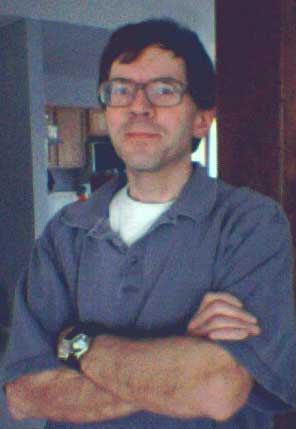Science and assuming your conclusion
This week's "Science Journal" column in the Wall Street Journal discusses a dramatic shift taking place recently in the field of Alzheimer's Disease research.
According to the columnist, Sharon Begley, research into Alzheimer's has been dominated by one particular theory about what causes the disease:
Proponents of the leading theory of Alzheimer's have been in pitched battle with scientists who have other ideas about this awful neurodegenerative disease. For more than 20 years, the leading theory has held that sticky blobs in the brain called amyloid plaques cause Alzheimer's. Because that idea has numerous problems, doubters argued that the plaques might be innocent bystanders to the real, "upstream" culprit. If so, targeting the plaques, or the rogue protein called beta-amyloid that forms them, would do nothing to help the 4.5 million Americans who suffer from Alzheimer's.
In an Orwellian turn of events, the National Coalition Against Censorship's "Knowledge Project" has come out against "actions that suppress and/or distort research findings." There certainly is some suppression and distortion going on, in the area of climate research, but it's not what the NCAC thinks it is. On the contrary, it's the skeptical climate research that's being suppressed and/or distorted, while the stuff that makes for better headlines ("Warmest Temperatures in the last 1,000,000 years," etc.) gets trumpeted by the mainstream press worldwide.
This is dangerous. Scientists are supposed to do research, investigate all the relevant phenomena, then publish their results and let the chips fall where they may. When you start requiring scientists to start with a certain restricted set of premises before they can get their research funded, you end up with bad science.
I've argued repeatedly that global climate is a complex phenomenon not explainable merely by studying a carefully selected subset of data designed to support a politically popular conclusion. We may well be influencing global climate by burning too much carbon -- that's a strong possibility. But dismissing skeptics as "the denial machine" does nothing to further our understanding of what is and what is not going on with global climate.
Urb's Blog
According to the columnist, Sharon Begley, research into Alzheimer's has been dominated by one particular theory about what causes the disease:
Proponents of the leading theory of Alzheimer's have been in pitched battle with scientists who have other ideas about this awful neurodegenerative disease. For more than 20 years, the leading theory has held that sticky blobs in the brain called amyloid plaques cause Alzheimer's. Because that idea has numerous problems, doubters argued that the plaques might be innocent bystanders to the real, "upstream" culprit. If so, targeting the plaques, or the rogue protein called beta-amyloid that forms them, would do nothing to help the 4.5 million Americans who suffer from Alzheimer's.
You might think this debate would play out with each side conducting research, in a "may the best science win" approach. But as I've written before, many scientists whose work challenges the amyloid dogma have been unable to publish in top journals, and their grant proposals, "go down in flames," as Mark Smith of Case Western Reserve University School of Medicine told me. "Among the major journals and funding agencies, the attitude was, 'if it isn't amyloid, it isn't AD.' "
A remarkably similar phenomenon -- only worse -- has been taking place in the field of global climate research. Over the past ten years or so, the idea that the Earth is in the grip of a catastrophic period of human-induced global warming, caused by one thing and one thing alone: the burning of fossil fuels. Anyone who conducts climate research, at this point, is essentially required to start with the premise that this is true. Research papers that don't support the global-warming hypothesis are seldom published and almost never funded, and researchers who disagree with the hypothesis are branded "the denial machine" (Climate Science Watch) as if there were some vast right-wing conspiracy against the obvious "inconvenient truth" of massive global warming.In an Orwellian turn of events, the National Coalition Against Censorship's "Knowledge Project" has come out against "actions that suppress and/or distort research findings." There certainly is some suppression and distortion going on, in the area of climate research, but it's not what the NCAC thinks it is. On the contrary, it's the skeptical climate research that's being suppressed and/or distorted, while the stuff that makes for better headlines ("Warmest Temperatures in the last 1,000,000 years," etc.) gets trumpeted by the mainstream press worldwide.
This is dangerous. Scientists are supposed to do research, investigate all the relevant phenomena, then publish their results and let the chips fall where they may. When you start requiring scientists to start with a certain restricted set of premises before they can get their research funded, you end up with bad science.
I've argued repeatedly that global climate is a complex phenomenon not explainable merely by studying a carefully selected subset of data designed to support a politically popular conclusion. We may well be influencing global climate by burning too much carbon -- that's a strong possibility. But dismissing skeptics as "the denial machine" does nothing to further our understanding of what is and what is not going on with global climate.
Urb's Blog


0 Comments:
Post a Comment
<< Home